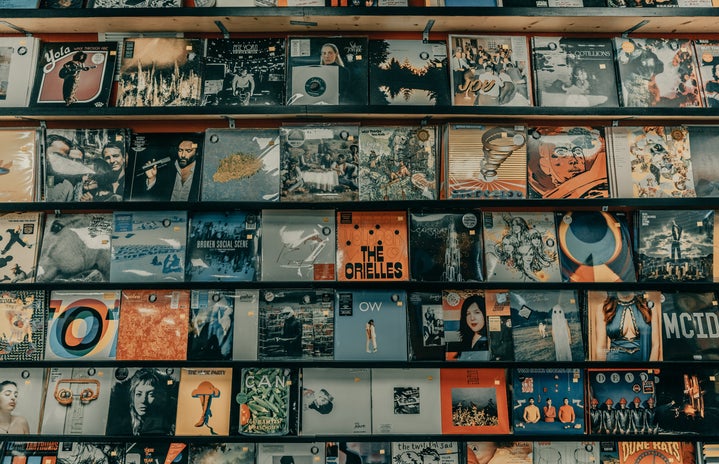George Floyd. Breonna Taylor. Philando Castille. Eric Garner. Tamir Rice. Tanisha Anderson. Micheal Brown. These are just a few of the names we, the American population, have heard over the last year (or years, if you were listening) as the Black Lives Matter Movement rocked the mainstream media and lives of many around the world. Populations stocked full of anger, hurt and fatigue stormed the streets of numerous cities and towns from New York City to Sydney, crying out for change and reform from an oppressive system put in place worldwide.
The United States and the entirety of the Western world has a history of oppression and racism that is deeply rooted in negligence, miseducation and arrogance that bleeds into the actions of so many individuals to this day. However, throughout history, we can see an ironic social trend that in many ways should convey signs of wanted change and acceptance to those in oppressed demographics in the Western World, music.
Nat King Cole. Ella Fitzgerald. Chuck Berry. Aretha Franklin. Kendrick Lamar. Michael Jackson. These are just a few names of Black artists coming from the United States who have had a profound influence on American culture and music that we can see have spread to many other demographics worldwide. From negro spirituals to trap albums, African-Americans practically made what we now know today as popular American or Western music either through direct influences or straight-up cultural appropriation by the oppressor, all the while currently making up only 13.4% of the American population. However, no one wants to talk about or acknowledge this clear presence that exists not only in music but in other forms of art and expression as well. This trend could be examined in fashion, design, hair, cosmetology and numerous other methods of expression all around us.

To even begin to understand the magnitude of their influence here, it is important to step back and truly examine modern music today. What music do you hear at parties? What music do you dance along to on TikTok? What do you hear when you turn on 99.5? What does your favorite mainstream celebrity listen to in their car? What do your parents listen to for fun?
Chances are your answers are along the lines of Hip-Hop, Trap, Rap, R&B, Black Pop, Soul and everything in between. This is not a coincidence! Taking into account the history and strides made by our African American and African ancestors and our current musical idols, their influences are perfectly summed up by Steven Lewis for Smithsonian: “African-American influences are so fundamental to American music that there would be no American music without them.”
The roots of this come from the complicated history of the Western world and its international shame: slavery. Being stolen and sold from one’s native land and forced into unpaid labor and Christianity, it was important for these first African-Americans to embed what they knew and remembered of their homelands into their new lives, cultures and families. Thus the negro spiritual was born, making way for many other African-American genres rich in emotion and social strife to come. This “rich African musical heritage” that was brought to the United States and many other western countries during this period of colonization in world history helped create the “foundation of a new American musical culture” that still exists to this day.”
The hybridization of these African influences with other non-indigenous cultures brought to the Americas at this time created a crescendo of sounds and genres that can be divided into different historical “rooms” for better understanding and interpretation. On this mental tour, you would come across Negro Spirituals, Blues, Jazz, Rock n Roll, Hip-Hop, Black Pop, Trap, Rap and countless subdivisions of musical creativity all crafted by the hands of African Americans throughout American History. One could also come across the numerous examples of stolen African American music and lyrics from the entirety of the 20th century or the ever-growing list of samples taken from years of African-American beats and melodies.

Looking at our society today, I almost feel like there is an obsession with current African-American music and culture that many could interpret as a severe fetishization in some extreme cases. Looking again at social media and our phones full of apps and data, we can see how young teens and children are dancing to the n-word on blast on Tiktok and Instagram while innocent Black Americans are gunned down in the street.
As expressed in the Hoya Magazine by Dressman and Ilawole, “the daily struggles, triumphs, hopes and failures of generations of Black Americans are carefully and methodically recorded not only in the pages of history textbooks but also by the music and lyrics of the era,” which can clearly be seen and heard. But is it for everyone? I think what we will see in the coming years, politically, socially, culturally and economically, will answer that question.
I personally feel that this influence, in particular, is tremendously overlooked outside of music and art history, even though it is vital to everyday life. Take the United States, for example. Our country’s political and economic power on a world stage puts us in a position of cultural importance and influence that is unmatched by any other country or demographic elsewhere. The U.S. top hits in most genres usually correlate with other countries and what they choose to or subconsciously choose to listen to on a day-to-day basis.

These globalization and homogenization trends and practices by the United States and the Western world are both intense and stable, leaving the world at American music’s fingertips socially and economically. This is why it is so frustrating that the African-American experience in music, business and culture are sometimes overlooked in the discussion of African-American influence in political and economic power in the Western world. Opening our population’s eyes to these historical and cultural trends could potentially lead to a sense of comradery and furthered understanding between different cultures and demographics within our borders and around the world.
The true significance of this meaningful topic and the many subtopics under its umbrella of study lies in the culture around us, the history behind us and the future before us. No one knows how our society will look in five or 10 years, but we can try and mold it with how we approach social issues such as the Black Lives Matter Movement and how we study important influences like the African-American fingerprints on popular American and Western music worldwide. We, as a modern society, would greatly benefit from this research and anything like it, as it peels back the layers of confusion and misunderstanding to reveal commonalities and historical wrongdoings between different cultures and demographics within American music and who is currently making it.



